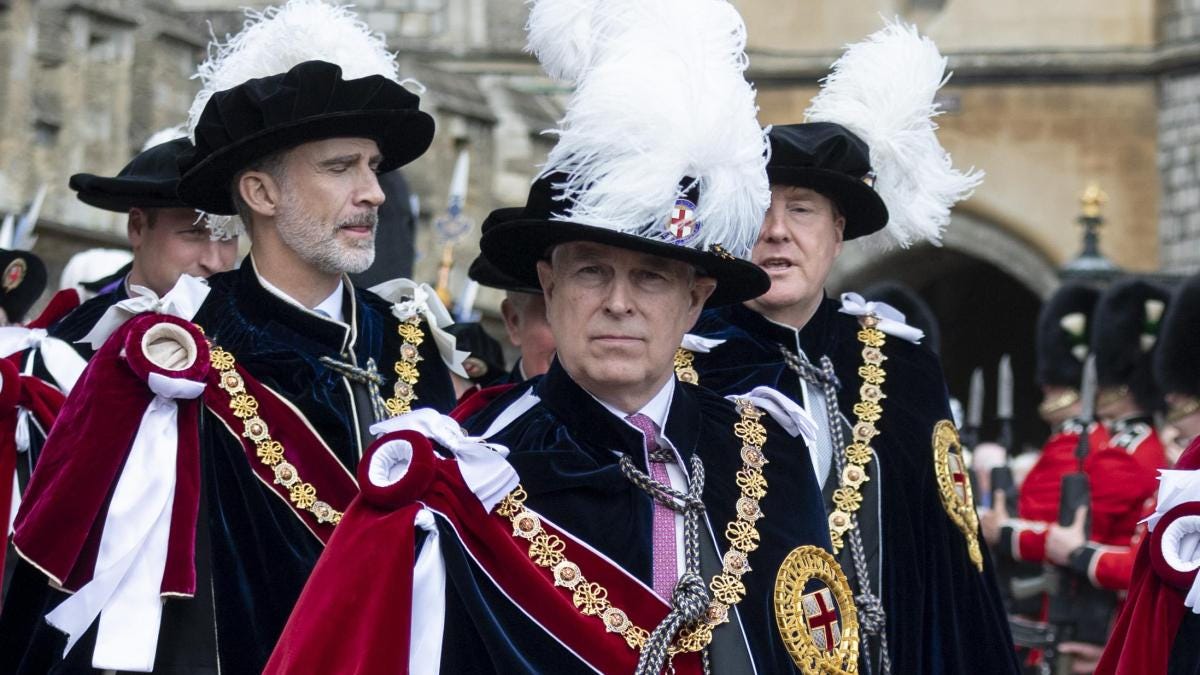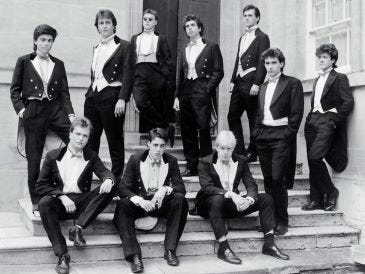Anyone Can Create. Only the Privileged Get Paid
From royal scandals to record deals, the real power isn’t in talent, it’s in access.
Prince Andrew’s face is back in the headlines,
A reminder that in Britain, privilege still means never truly facing the music.
For centuries our institutions have been built to protect those at the top, from palaces to parliaments, to private clubs.
But the same invisible scaffolding that shields the powerful also shapes who gets to thrive creatively, who gets funded, who gets seen, who gets paid.
Because privilege can also buy opportunity.
The gentrification of imagination.
I was born in London.
We moved around a lot but eventually settled by the river in Putney, long before it was fashionable.
Back then in the seventies Putney was scruffy but alive.
Full of musicians, painters, and dreamers.
Cheap rent meant freedom, the kind of freedom that breeds creativity.
Now the same houses go for three million quid +.
The scruff’s gone.
So has the soul.
That’s the story of modern Britain: the gentrification of imagination.
In The Art of the First Take I wrote about how the best creativity happens when things are raw and unfiltered.
What we don’t talk about is how rare that freedom’s become.
Because to take creative risks today you need time.
You need security.
You need… privilege.
We’re all equal but some are more equal then others
When I was thirteen I was sneaking into the local pubs.
By fifteen I was in the clubs of Chelsea and Kensington.
Same city. Different postcode but a whole different world.
I grew up in a liberal, creative home.
I was taught that everyone’s equal and that you treat people how you’d like to be treated.
But those nights in West London taught me something else.
Not everyone believes in equality.
Some people see the world as something to share.
Others see it as something to own and abuse.
That’s privilege.
It’s Great to be British
In Britain it’s practically an export.
Centuries of class and monarchy have made inequality feel normal, even noble.
The clue’s in the name: The Royal Family.
Just another family, except one that convinced the rest of us to pay for their privilege.
The hierarchy trickles down through titles, schools, and clubs that sustain the pecking order
Look at this Bullingdon Club photo.
Oxford Universities male only private members club.
Those smug, tuxedoed faces.
That’s not confidence.
That’s certainty, the certainty they’ll be looked after for life.
And that same old-school network of entitlement didn’t just run politics and finance.
It quietly shaped the culture industry too.
The record labels, galleries, publishing houses, even the big streaming platforms, are built on the same foundations.
The same families.
The same money.
The same access.
So while the aristocracy inherited land, the modern elite inherited culture.
They own the stories now.
“The people who control the narrative control the culture.
The people who control the culture control the future.”
That’s why from Los Angeles to Lagos the creative industries have become gated communities.
In the UK 43% of top-selling musicians went to private schools versus 7% of the general population.
The industry that claims to give a voice to the voiceless mostly amplifies those who already have a microphone.
Half of working musicians earn under £15,000 a year and only one in ten make a full-time living from music.
Exposure without pay is just exploitation with better branding, which is why in Kill Spotify I argued that the “be grateful to be heard” story is a con trick.
As Rei Inamoto put it, you need a roof, food, and safety before you can even think about making art.
Creativity isn’t free.
It’s subsidised by wealth, time, or luck.
In Magic Tech I talked about the spark between human creativity and machine intelligence, that beautiful moment when art meets code.
While we obsess over AI taking our jobs we ignore the human hierarchies that have been taking our opportunities for centuries.
Privilege now is a class system and a code system.
Who gets funded.
Who gets featured.
Whose data gets monetised.
Whose voice gets amplified.
The new aristocracy doesn’t wear crowns.
It wears credentials, algorithms and venture capital.
“Privilege protects wealth and behaviour.
When consequence disappears, corruption grows.”
When unchecked privilege gate keeps opportunity, it also breeds impunity.
The kind that assumes consequence is for other people.
The Princes
And that brings us back Prince Andrew and self appointed Prince Jeffrey Epstein.
A grim intersection of wealth, access and entitlement.
Andrew stepped back from royal duties after his 2019 Newsnight interview and later settled a civil case brought by Virginia Giuffre without admitting liability.
Epstein’s network exposed how powerful men used money and status to exploit and silence.
These cases aren’t outliers, they’re symptoms.
When systems elevate certain people beyond accountability, abuse festers in the shadows.
Privilege stops being just influence, it turns into immunity.
The ol’ boys network.
As AI and robotics take more of the work, creativity becomes the last frontier of human value.
But what happens if only the privileged can afford to create?
We end up in a world where machines build everything and humans just scroll through it.
Creativity isn’t a hobby.
It’s how we process existence.
In a world of AI and Robotics and mass unemployment, it’s how we occupy the mind the way work used to.
Thats why its called an ‘Occupation’
If we want a sane future we need to make creativity accessible, not exclusive.
That means dismantling the systems that hoard opportunity, the royal families, the private schools, the industry gatekeepers, the old boys’ clubs in Savile Row suits and Silicon Valley hoodies.
It also means building cultures where power can’t hide behind prestige again.
We need a new kind of privilege.
The privilege to create.
The privilege to fail.
The privilege to try again.
If creativity is the new currency then access must be the new equality.
In From WhatsApp to Vinyl I wrote about community, how connection used to mean helping your neighbour, not growing your following.
That’s where the next revolution starts.
Not in code, in connection.
We can’t keep waiting for permission from the privileged.
It’s time to write our own code.
Harmony Through Mixology
Reprogramming the system, one beat at a time.




GOLD!
‘The art of the first take’ link is not working.